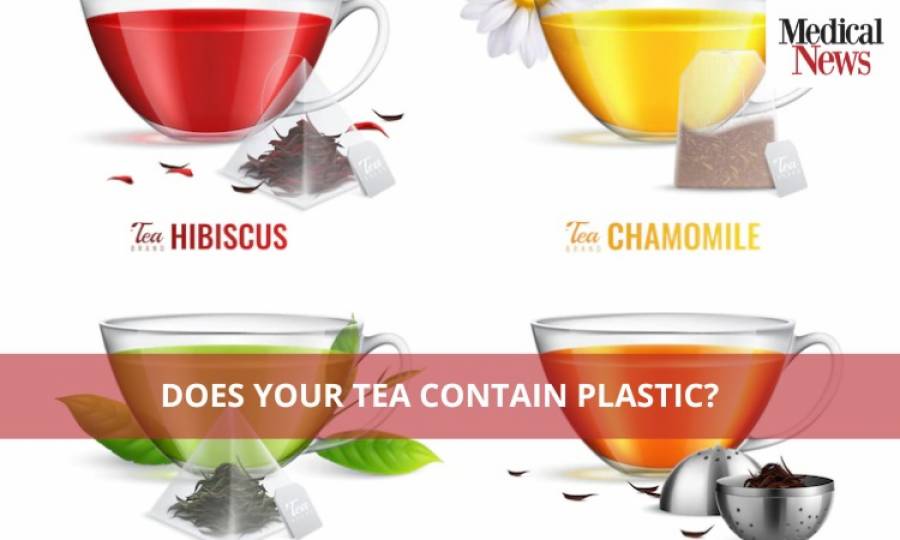Does Your Tea Contain Plastic?

Yes! As shocking as it may be, it is true that you may be consuming plastic in your cup of tea! A recent study has shown a single plastic tea bag at brewing temperature releases roughly 3,000 microplastics into each cup.
Love Of Tea!
In Pakistan, tea is the ultimate solution for every single event or problem. Breakfast? Tea after lunch? Tea, enjoying evening time? Tea, after dinner? Tea, wedding? Tea, a funeral? Tea, happy or sad? Tea.
The love for tea in Pakistan is quite evident in the increase in its consumption
According to the UN's Food and Agriculture Organisation (FAO), Pakistan is amongst the top 7 countries in the world with the highest tea consumption. Tea consumption in Pakistan is now anticipated to be 1,72,911 tonnes, with that figure expected to rise to 2,50,755 tonnes by 2027. What's even more interesting is that we are the world's largest tea importers!
Benefits of Tea
Tea has been shown to help with acne, poor breath, colds, stress, and eye problems such as glaucoma. Although too much-caffeinated tea might cause insomnia, drinking just the appropriate quantity before the night is one of the numerous treatments advised to stop noisy snores and improve overall sleep. Green tea's high antioxidant content (also known as polyphenols) is particularly good for the heart and brain.
Plastics in Tea
According to a recent study by Sakarya University, around 13,000 microplastics are released from a single teabag.
Teabags are usually made of nylon or polyethylene terephthalate (PET), which essentially are plastics. In a previous study by McGill University, published in the Journal of Environmental Science and Technology of the American Chemical Society, researchers discovered that steeping a single plastic tea bag at brewing temperature releases roughly 11.6 billion microplastics and 3.1 billion nano plastics into each cup.
Microplastics were recently found in human blood for the first time by researchers from Vrije University in the Netherlands.
Tea users may be dosing themselves with billions of plastic particles, some of which are tiny enough to penetrate human cells. Plastic fibres employed in the sealant are found in the majority of paper tea bags, in addition to nylon and PET plastic tea bags. Even paper tea bags contain a dangerous chemical known as epichlorohydrin, which is added to keep the bag from bursting.
Effects on Our Health and Environment!
According to a 2019 research by the World Wide Fund for Nature, Adults intake an average of a credit card's worth, i.e. 5 grams, of plastic particles per week. Many medical specialists are concerned about the possible human health effects of microplastic contamination, and it is becoming an increasingly critical scientific study topic.
Even though there is still work needed to be done to establish a direct correlation to the harmful effects of plastic in tea, plastic accumulation can be hazardous to our health, nonetheless, especially to the body's endocrine system. It can possibly cause developmental, behavioural and reproductive health issues.
Not only our health but teabags also are bad for our environment as well, since they are not biodegradable, can not be used as compost and can not decompose.
What Can We Do?
To avoid plastics, we must avoid teabags and use loose leaves tea instead. Because loose leaf tea is charged by weight rather than by bag, it is a more cost-effective option. To save money and reduce trash, you may also reuse loose leaf tea to brew a second cup. You may buy loose leaf tea in large quantities that would have less plastic packaging as well, making it environment friendly. We can also raise awareness and urge tea companies to stop using plastics because microplastic pollution isn't our cup of tea.
Trending
Popular
Sindh pledges vigorous action to prevent poliovirus transmission
-
PMA stresses health equity on World ...
04:08 PM, 9 Apr, 2024 -
Dow University’s new rabies vaccine ...
12:18 PM, 28 Mar, 2024 -
IRD role lauded in advancing ...
02:53 PM, 12 Mar, 2024 -
Over one billion people worldwide ...
09:48 AM, 5 Mar, 2024




